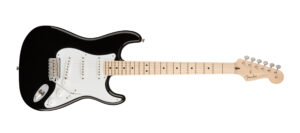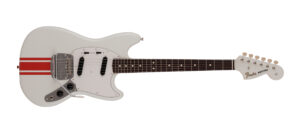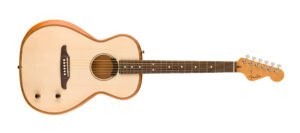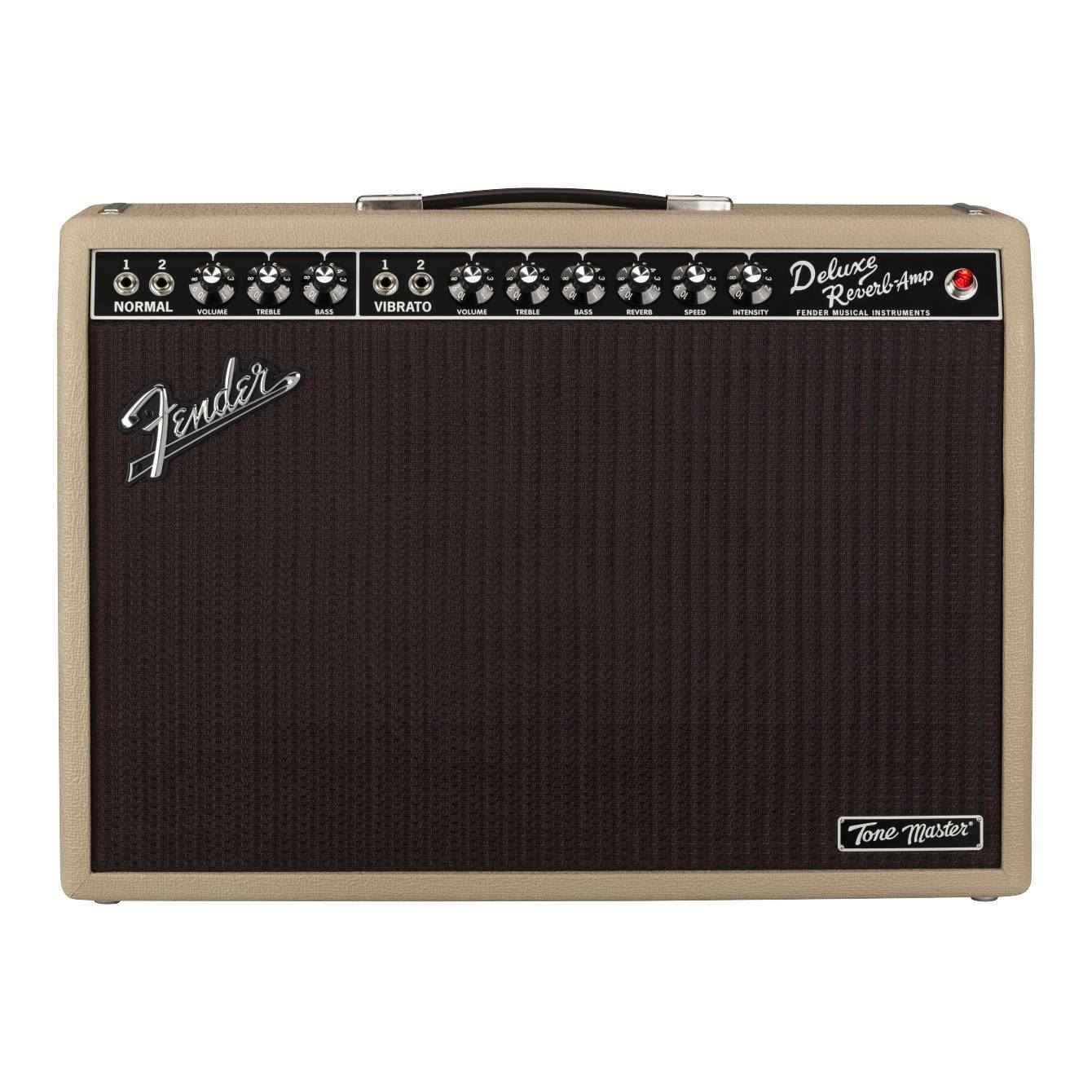Fender holds a storied history within the realm of musical instrument manufacturing. Established in 1946 by Leo Fender, the company revolutionized the music industry by introducing innovative electric guitars, amplifiers, and bass guitars. The breakthrough came with the creation of the Telecaster in 1950, followed by the iconic Stratocaster in 1954, both of which were groundbreaking in design and sound. Fender’s guitars were not only distinguished by their quality craftsmanship but also by their reliability and versatile tonal capabilities, making them a favorite among musicians across genres. Over the years, Fender expanded its product line to include various guitar models, basses, amplifiers, and other musical equipment, cementing its position as a leading force in the world of musical instruments.
The influence of Fender guitars on music is immeasurable, spanning multiple decades and genres. The Stratocaster and Telecaster, in particular, became synonymous with the sounds of rock ‘n’ roll, blues, pop, country, and many other musical styles. Renowned musicians such as Jimi Hendrix, Eric Clapton, Stevie Ray Vaughan, and countless others made these guitars their instruments of choice, contributing to the distinct sonic landscapes that shaped music history. The unique tonal characteristics, versatility, and durability of Fender guitars not only impacted the way music was played but also influenced the evolution of music itself. Their contribution extended beyond just the instruments; Fender amplifiers played a crucial role in shaping the sounds of legendary bands and performers. The enduring legacy of Fender guitars continues to resonate in contemporary music, inspiring new generations of musicians and maintaining their status as iconic symbols of musical innovation and creativity.
Different types of fender guitars
Stratocaster Series
The Fender Stratocaster Series encompasses a diverse range of electric guitar models that have left an indelible mark on music history. Within this series, various iterations such as the Standard, American Professional, and Custom Shop models offer players an extensive selection featuring distinct tonal profiles, neck configurations, pickups, and finishes. This evolution in Stratocaster models underscores Fender’s commitment to meeting the diverse needs of musicians while preserving the guitar’s iconic design. The Stratocaster’s journey through time showcases a continuous refinement in its design, witnessing advancements in hardware, electronics, and wood choices. Alterations in pickup arrangements, tremolo systems, and technological innovations like noiseless pickups and versatile switching options have enhanced the guitar’s sonic palette, appealing to modern musicians while honoring the timeless legacy of the Stratocaster.
Telecaster Series
Moving to the Telecaster Series, Fender presents a collection of models catering to musicians seeking reliability, simplicity, and a distinctive tone. From the original 1950 Telecaster to contemporary versions such as the American Professional II and Custom Shop Telecasters, this series offers a wide array of choices. Each Telecaster model varies in terms of pickups, neck profiles, hardware, and finishes, providing players with diverse sonic possibilities to suit their individual playing styles. The Telecaster’s hallmark features, including its single-cutaway body, two single-coil pickups, fixed bridge, and straightforward controls, embody a straightforward approach to guitar construction. This simplicity coupled with its twangy sound has endeared it to musicians across genres, solidifying its place as an enduring classic among electric guitars.
Jaguar Series
Within the Jaguar Series, Fender introduces a lineup of guitars known for their unique characteristics. Models such as the Classic Player, American Professional, and Vintage Modified Jaguar showcase various tonal options and design elements. The Jaguar’s distinctive traits, including a shorter scale length, offset body shape, and an intricate switching system, contribute to its sonic versatility, attracting players seeking a different tonal palette and playability.
Jazzmaster Series
Meanwhile, in the Jazzmaster Series, Fender presents models known for their unique contribution to music. The Jazzmaster’s various iterations, from vintage reissues to modern interpretations, have cemented their place in musical history. Originally designed for jazz players, the Jazzmaster’s warm, smooth sound and innovative electronics appealed to surf rock and alternative musicians, expanding its sonic influence beyond its initial genre. Its distinctive circuitry, including rhythm and lead circuits, produced lush tones that became emblematic across various music genres, making the Jazzmaster a significant player in shaping the sonic landscape of the 1960s and continuing to inspire musicians in alternative, indie, and experimental realms, solidifying its importance in musical innovation.
Fender’s Specialty Guitars
Fender, renowned for its iconic electric guitars, also offers a range of specialty guitars that cater to distinct tastes and playing styles. These specialty guitars include unique models that deviate from Fender’s traditional designs, offering musicians unconventional features and tonal characteristics.
Mustang Series
One such line is the Mustang Series, which stands out due to its unconventional design elements. The Mustang guitars feature a shorter scale length compared to standard Fender models, along with distinctive pickup configurations and a compact body. This unconventional setup gives the Mustang guitars a distinct tonal profile, appealing to musicians seeking a different sonic palette. The smaller size and comfortable playability of the Mustang make it popular among players in alternative rock, punk, and indie music scenes. Notably, the Mustang gained significant visibility through Kurt Cobain’s use in Nirvana, contributing to its association with the raw, edgy sound of grunge rock.
Precision and Jazz Basses
Another integral part of Fender’s specialty offerings includes the Precision and Jazz Basses, which have left an enduring impact on bass playing. The Precision Bass, introduced in the 1950s, features a split single-coil pickup, delivering a powerful and fundamental bass sound that became a cornerstone in various music genres such as rock, funk, and pop. In contrast, the Jazz Bass, introduced shortly after the Precision Bass, boasts dual single-coil pickups that offer a wider tonal range and brighter sound. The Jazz Bass’s versatility and sleek design have made it a favorite among bassists in genres like jazz, fusion, and funk, allowing for more nuanced playing styles and tonal options.
Fender’s specialty guitars, like the Mustang Series and Precision/Jazz Basses, cater to musicians seeking unique sounds and playing experiences outside the realm of traditional Fender instruments. These guitars have made significant contributions to different musical genres and continue to inspire musicians exploring diverse sonic landscapes.
Fender Acoustic Guitars
Fender’s foray into acoustic guitars is marked by a distinct approach that merges tradition with innovation. The company’s commitment to acoustic instruments showcases a blend of quality craftsmanship and modern advancements. Fender’s acoustic guitar range encompasses various models designed to cater to different player preferences and musical styles.
Fender Acoustic Guitar
Within their acoustic lineup, notable models stand out for their unique characteristics. The Fender Paramount series, for instance, emphasizes quality construction and tonewoods, offering models with solid wood tops, back, and sides, resulting in resonant and rich tones. The CD-60S and CC-60S models are recognized for their affordability without compromising on sound quality, making them popular choices for beginners and seasoned players alike. The Tim Armstrong Hellcat, designed in collaboration with Rancid’s Tim Armstrong, features a distinctive vibe with a solid mahogany top, providing a warm and resonant tone suitable for punk, folk, and rock music styles.
Fender acoustic-Electric Hybrids
Additionally, Fender’s dedication to innovation is evident in their acoustic-electric hybrids, which amalgamate electric and acoustic elements. These hybrid models, such as the American Acoustasonic series, blend traditional acoustic construction with modern electronics. The Acoustasonic guitars integrate features like multiple pickup systems, enabling players to switch between various tones and blend acoustic and electric sounds seamlessly. This versatility caters to a broad spectrum of musical applications, from intimate acoustic performances to stage gigs requiring a mix of acoustic warmth and electric versatility.
The popularity of these acoustic-electric hybrids has surged due to their adaptability and wide-ranging applications across genres. Musicians appreciate their ability to provide authentic acoustic tones along with the flexibility to experiment with diverse sounds, making them suitable for studio recordings, live performances, and various musical environments. Fender’s innovative approach in crafting acoustic-electric hybrids has earned them a place among the sought-after instruments for artists seeking versatility without compromising on tonal quality or playability.
Classic vs. Contemporary Fender Guitars
Fender guitars have a rich legacy encompassing both classic and contemporary models, each representing different eras and catering to diverse musical preferences and playing styles.
Classic Fender guitars, such as the Stratocaster and Telecaster, hold an iconic status in the world of electric guitars. These timeless instruments boast designs that have remained relatively unchanged since their inception in the 1950s. The Stratocaster, with its distinctive double-cutaway body, three single-coil pickups, tremolo system, and versatile tonal capabilities, has been favored by legends like Jimi Hendrix and Eric Clapton, becoming synonymous with the sound of rock, blues, and pop music. Similarly, the Telecaster, known for its single-cutaway body, twangy sound, and straightforward design, has been embraced by musicians across genres, from country to rock, delivering a timeless tone and simplicity that continues to resonate with players worldwide.
In contrast, contemporary Fender guitars exhibit a blend of traditional craftsmanship and modern innovations. These guitars often feature updated electronics, enhanced playability, and diverse tonal options to meet the demands of today’s musicians. Models like the American Professional and Ultra Series incorporate advancements such as noiseless pickups, compound radius fretboards, and versatile switching systems, appealing to players seeking a combination of vintage-inspired tones with modern playability. The contemporary Fender guitars maintain the essence of the classic designs while integrating cutting-edge technology and refinements to offer musicians a broader sonic palette and improved performance.
Ultimately, the distinction between classic and contemporary Fender guitars lies in their design, technology, and the eras they represent. Classic models honor Fender’s heritage and iconic designs that have stood the test of time, while contemporary guitars infuse modern advancements to cater to evolving musical tastes and technological advancements, appealing to a new generation of players seeking versatility and innovation without compromising the essence of Fender’s legacy.
Fender Guitar Customization and Modding
Fender guitars offer a plethora of customization options, allowing players to tailor their instruments according to their preferences and playing styles. Aftermarket parts and accessories play a significant role in this realm, enabling guitarists to modify their instruments extensively. Components such as pickups, bridges, tuners, pickguards, and electronics can be replaced or upgraded to achieve specific tones or enhance functionality. These aftermarket parts come in various styles and configurations, providing a wide range of options for customization.
Moreover, DIY modifications represent another avenue for guitarists to personalize their instruments. Players often undertake DIY projects, such as changing pickups, adjusting hardware, modifying circuits, or even refinishing the guitar’s body. These modifications can have a profound effect on the guitar’s aesthetics, tone, and playability. For instance, altering pickups can significantly impact the instrument’s sound by adjusting its tonal characteristics, ranging from brighter, sharper tones to warmer, mellower sounds. Similarly, adjusting the guitar’s hardware, such as changing bridges or tuning machines, can affect playability, stability, and even sustain.
The influence of modifications on a guitar’s sound and playability is substantial, often directly affecting the instrument’s performance. Changes in pickups, for instance, can alter the guitar’s tonal palette by emphasizing certain frequencies or changing the output levels. Upgrading to higher-quality components may enhance the instrument’s overall sound quality and responsiveness. Adjusting the guitar’s hardware, such as changing the bridge or nut material, can affect string action, intonation, and sustain, consequently impacting playability and feel.
However, while modifications offer opportunities for customization, several considerations are crucial before undertaking any alterations to a Fender guitar. Understanding the compatibility of aftermarket parts with the guitar model and ensuring proper installation are crucial to avoid damaging the instrument. Additionally, some modifications may void warranties or alter the guitar’s resale value. It’s essential to weigh the potential benefits against the risks and costs associated with customization, ensuring that the modifications align with one’s musical needs and preferences. Seeking advice from experienced professionals or luthiers can also be beneficial in making informed decisions regarding guitar customization. Ultimately, careful consideration and research are pivotal in maximizing the benefits of guitar modifications while preserving the instrument’s integrity and performance.
Collecting Fender Guitars
Certain Fender guitar models have gained significant prominence in the collector’s market due to their rarity, historical significance, and unique characteristics, making them highly sought after by enthusiasts and collectors worldwide.
Vintage models from the 1950s and 1960s, such as the original Stratocasters and Telecasters, hold immense value and desirability among collectors. These guitars are revered for their historical importance, being part of the initial production runs and often featuring specific details or finishes that were limited during those periods. Custom colors, limited editions, or guitars associated with renowned musicians can significantly enhance a guitar’s collectibility.
Factors influencing the guitar collecting market encompass various elements. Historical significance, including guitars linked to influential artists or iconic eras in music, greatly affects a model’s desirability and value. Rarity plays a crucial role; limited production numbers, unique features, or specific finishes contribute to a guitar’s collectibility. The condition of the instrument is paramount—well-preserved, all-original guitars with minimal wear tend to command higher prices. Authenticity, provenance, and documentation supporting a guitar’s history and originality are also vital aspects affecting its collectibility.
One example of a rare Fender guitar highly sought after by collectors is the Fender Stratocaster “Blackie.” Blackie refers to a particular Stratocaster famously owned and extensively played by Eric Clapton during the 1970s. This guitar was not a standard production model but rather a custom hybrid assembled by Clapton himself.
Blackie was created by combining the best parts from several vintage Stratocasters Clapton purchased in the 1970s. He selected a black-finished alder body from one guitar, a maple neck from another, and different pickups and hardware from various sources. This guitar became Clapton’s primary instrument during that period, notably featuring on some of his most iconic recordings and performances.
Due to its association with Eric Clapton and its unique hybrid nature, Blackie holds immense significance in the history of rock music and Fender guitars. Its rarity stems from being a personalized amalgamation of vintage parts and its close association with one of the most influential guitarists in music history. Blackie’s distinctive history, ties to a legendary musician, and limited production (as it was a custom assembly) make it a highly coveted and sought-after instrument among collectors, often commanding high prices when offered for sale at auctions or through private transactions.
Overall, the rarity, historical significance, condition, authenticity, and cultural relevance of specific Fender guitar models are key factors that drive the collectibility and market value of these instruments. The fascination with vintage and rare Fender guitars continues to attract collectors, enthusiasts, and investors who value these iconic instruments for their craftsmanship, historical importance, and unique place in the world of music.
Fender Guitars in Popular Music Culture
Performers and Their Fender Instruments
Fender guitars have been synonymous with numerous iconic performers who have wielded these instruments to shape the landscape of modern music. Influential musicians associated with Fender include legendary figures like Jimi Hendrix, whose virtuoso playing on the Fender Stratocaster revolutionized electric guitar techniques and sounds. Eric Clapton’s celebrated performances, notably with his “Blackie” Stratocaster, further solidified the instrument’s place in rock history. Stevie Ray Vaughan’s mastery of the Stratocaster helped redefine blues guitar, while artists like Jeff Beck and Ritchie Blackmore also left indelible marks with their Stratocaster-driven sounds. The Telecaster found favor with legends such as Bruce Springsteen and Keith Richards, adding a distinctive twang to rock ‘n’ roll and country music.
Fender guitars’ impact on music genres spans across various styles and eras. The Stratocaster’s versatile tones and smooth playability have left an indelible mark on rock, blues, pop, funk, and beyond. The Telecaster’s crisp, bright sound has become a staple in country, rock, and alternative music. These instruments have not only influenced the sound but also shaped the playing techniques and sonic landscapes within their respective genres, becoming synonymous with the defining sounds of different musical periods.
Fender Guitars in Film and Television
Fender guitars have made memorable appearances in film and television, contributing to their cultural representation and significance beyond the realm of music. These appearances often mirror the cultural context of their times. The Fender Stratocaster, for instance, prominently featured in movies like “Back to the Future” with Marty McFly’s electrifying performance, symbolizing youthful rebellion and innovation. Television shows like “The Simpsons” showcased fictional musicians wielding Fender guitars, becoming symbols of artistic expression and creativity.
The cultural representation of Fender instruments in visual media often extends beyond their musical significance, portraying them as symbols of individualism, artistic prowess, and cultural movements. Fender guitars’ appearances in films and TV shows often reflect their association with youth culture, creativity, and the spirit of rock ‘n’ roll rebellion. These visual representations contribute to the instruments’ enduring iconic status, solidifying their place not just in music history but also in popular culture as symbols of artistic expression and freedom.
FAQs about Fender Guitars
- What is the history behind Fender guitars? Fender, established in 1946 by Leo Fender, is a renowned manufacturer of electric guitars and amplifiers. Their iconic models like the Stratocaster and Telecaster have significantly shaped the music industry.
- What are the different series or lines of Fender guitars? Fender offers various series of guitars, including the Stratocaster Series, Telecaster Series, Jaguar and Jazzmaster Series, Mustang Series, and acoustic guitar ranges like the Paramount series.
- What makes Fender guitars unique? Fender guitars are known for their quality craftsmanship, innovative designs, and versatile tones. They’ve influenced multiple music genres and have been favored by numerous iconic musicians.
- What are some popular models of Fender guitars? Some of the most popular and iconic models include the Fender Stratocaster, Telecaster, Jazzmaster, Jaguar, Precision Bass, Jazz Bass, and Mustang.
- How do Fender guitars differ from each other? Each model has its unique characteristics, tones, and designs. For example, the Stratocaster and Telecaster differ in body shapes, pickups, and tonal qualities, catering to different playing styles.
- Are there different price ranges for Fender guitars? Yes, Fender guitars come in various price ranges depending on factors like the model, series, materials, and production location. There are affordable entry-level guitars as well as high-end custom shop models.
- Can I customize my Fender guitar? Yes, Fender guitars offer ample opportunities for customization. You can upgrade components like pickups, bridges, and tuning machines, or even modify the aesthetics and electronics to suit your preferences.
- Where can I buy genuine Fender guitars and accessories? Genuine Fender guitars and accessories are available through authorized Fender dealers, music stores, or directly from the Fender website.
- What maintenance is required for Fender guitars? Regular maintenance includes cleaning, changing strings, adjusting the action, and keeping the instrument in proper humidity conditions to ensure its longevity and optimal performance.
- Are Fender guitars a good choice for beginners? Fender offers a range of guitars suitable for beginners to advanced players. Models like the Squier series provide affordable yet quality options for those starting their musical journey.

